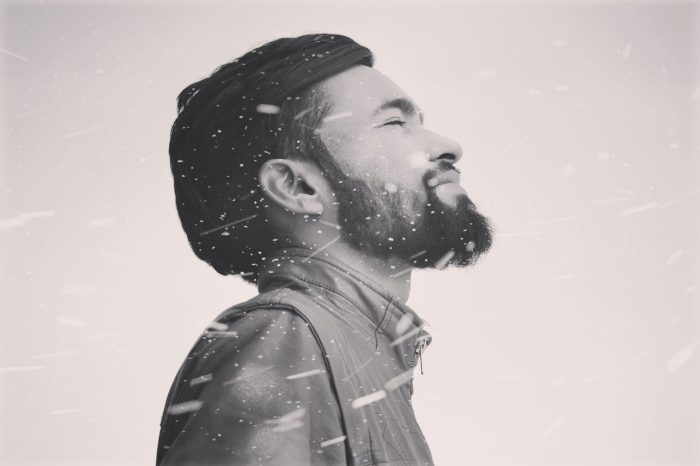{*Did you know you can write on Elephant? Here’s how—big changes: How to Write & Make Money or at least Be of Benefit on Elephant. ~ Waylon}
~
The Individual is Not Happening
The primary function of meditation including pranayama is to undermine our sense of individuality. Not only are we not distinct from each other, but we unfortunately share the mistaken belief that we are. All anger, hatred, and deceit between “individuals” arises because we believe in our autonomy. It is a terribly narrow-minded viewpoint.
As negative as this viewpoint is, it is carried into meditation. Traditionally, the aim of meditation was to attain individual enlightenment. Mahayana Buddhism was the first to observe the selfishness of seeking individual-enlightenment and introduced the concept of seeking enlightenment for the purpose of awakening others, the altruistic “bodhisattva” ambition. Nevertheless, even though we know better, it is difficult to root out notions as deeply embedded as selfishness.
Spring cleaning for the yogi is to discard selfishness because it is selfishness that fosters the idea of individuality, the “self,” which precludes identifying with the whole of humanity. As long as “individual” freedom is the aim of meditation, others will be viewed dismissively, separated from us by a huge gap. The quest for individual freedom is doomed before it begins and no amount of toiling on the meditation cushion will save us. We must turn our efforts toward altruistic ambitions.
Mahayana Buddhism remedies the aforementioned problem by offering a path to self-realization which is contingent upon developing a practice which seeks the awakening of all living beings. This is “Maha-mudra,” the “Great Attitude.” It is at the core of Mahayana Buddhist practice.
If we agree that selfishness is an obstacle, then it is not a stretch to reason that it makes more sense to seek the welfare of others as a necessary means to benefit oneself. However, before running off to sweep a temple or volunteer to do orderly work at a hospital take a moment to think about whether or not the anticipated means will achieve the universal compassion sought.
While acts of kindness and generosity gain merit, we are limited by our physical constraints. We can only do so much with our two hands, and our monetary resources too may be a limitation. Perfectly logical it would be to approach the matter of developing universal compassion in another way, through the practice of breath mastery, pranayama, or meditation. We all share the air we breathe; our life depends on breath. When we breathe our last inhalation and exhalation we die. We have that in common with everyone, so since I am only one person, and others are many, we might through an aspirational wish imagine benefitting all humanity as we regulate our breath through the practice of pranayama. In either case, whether through mental discipline, meditation, or breath-mastery, yoga, the deeper our conviction that others benefit from our practice, the more effective our practice becomes.
Patience goes a long way toward developing the bodhisattva attitude. Transitioning from a contrived altruistic attitude to a genuine one will be a gradual process. As long as we know from the start that selfishness can infect spiritual practice as much as material striving, we can take the precautions necessary to avoid selfish ambitions. It is quite remarkable that selfishness is ingrained in us as deeply as it is when it is illogical to seek to use shared resources toward individual advantage when our gain means another’s loss. There are smarter ways to accomplish our wishes that do not come at the expense of others.
The question is how to become altruistic in an uncontrived way? We must somehow feel a connection with others and not simply be kind because we are supposed to be kind. That will drain our energy and the recipients of our kindness will sense our lack of sincerity.
Breath mastery regulates the breath. Thoughts slow down as our breath slows down. Not only do we share the air we breathe with all living beings on the planet, but the inner breath, the subtle current of life, is also common to all beings. It is awareness of this inner current that causes us to become increasingly more genuine toward others as our development grows into the realization that the only difference separating ourselves from others is that we are aware of a life force common to all or are not. This realization manifests itself as a genuine feeling of oneness with others. It is tangible and others can sense it in us.
Our physical bodies because they are discreet cause us to think we are too. But of course, we are far more than our physical bodies. Nevertheless, we do judge by appearances, like it or not, and seeing past appearances is the task of meditation. The inner world is shared just as the external world is shared. While physical constraints make it difficult to share our physical world, when we dive deep within ourselves through meditation, we connect with a shared reality. That is why meditation is as powerful as it is. It enables us to see that nothing belongs to us, and it is the perception that not a single thing is ours that gives way to the view that everything is communal.
What is this “shared world?” It is the equanimity that arises from feeling an absence of isolation wherein we see the absurdity of self-centered struggling and the value of trusting our karma to unfold and support us in accordance with our deeds. It is accepting that we have much to learn. It is a willingness to blend our personal intention with universal well-being. It is letting go of being in charge and allowing conditions to direct us. It is surrender.
~
{Please consider Boosting our authors’ articles in their first week to help them win Elephant’s Ecosystem so they can get paid and write more.}
 Share on bsky
Share on bsky


Read 2 comments and reply